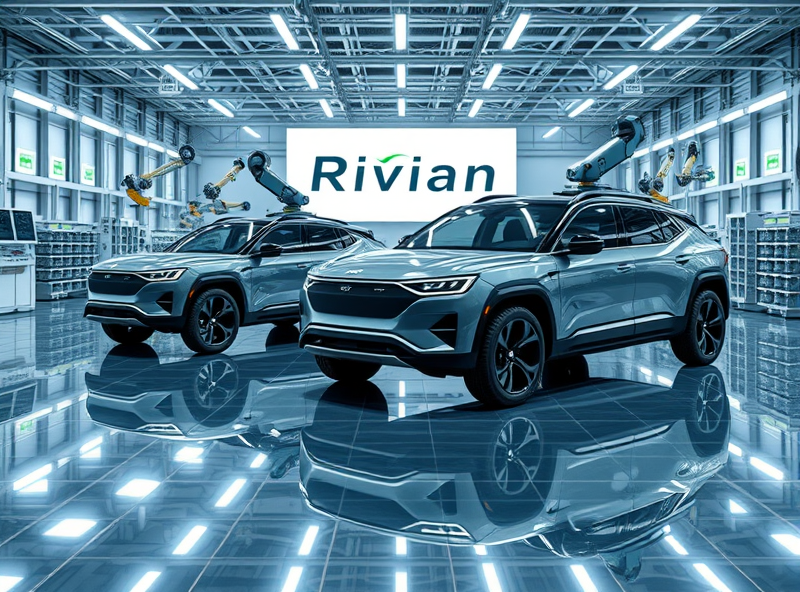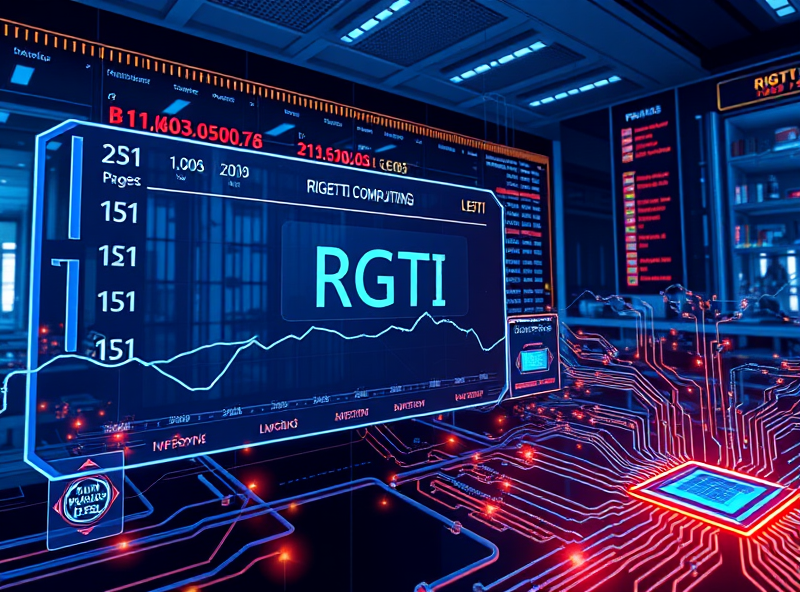
Rivian Automotive Stock Outlook: Investment Trends and Future Potential
Recent Stock Trends and Market Reactions

Rivian Automotive has been a focal point for investors in the electric vehicle (EV) market, and its stock trends reflect both the excitement and challenges of this growing industry. Recently, Rivian’s stock has experienced fluctuations, largely influenced by broader market conditions, competition within the EV sector, and the company’s production milestones. For instance, Rivian’s ability to meet production targets and scale operations has been a key factor in shaping investor sentiment. Additionally, macroeconomic factors, such as interest rate hikes and inflation concerns, have impacted the stock’s performance, as they influence consumer spending and investment in growth-oriented companies like Rivian.
Market reactions to Rivian’s quarterly earnings reports have also been telling. Positive news, such as exceeding delivery expectations or securing strategic partnerships, has often led to short-term stock surges. Conversely, delays in production or supply chain challenges have caused temporary dips. For investors, staying informed about these trends and understanding the broader market context is crucial. By keeping an eye on Rivian’s financial health, competitive positioning, and industry developments, you can make more informed decisions about whether to invest in this promising EV company.
Financial Performance and Forecasts

Rivian Automotive has been making waves in the electric vehicle (EV) market, but how does its financial performance stack up, and what can investors expect in the future? Rivian’s recent earnings reports reveal a mix of progress and challenges. The company has shown strong revenue growth, driven by increasing production and delivery of its electric trucks and SUVs. However, like many young EV companies, Rivian is still operating at a loss as it invests heavily in scaling production and expanding its infrastructure.
Looking ahead, analysts predict that Rivian’s financial performance will improve as production efficiencies increase and economies of scale are achieved. The company has also been focusing on reducing costs and improving its supply chain, which could positively impact its bottom line. Additionally, Rivian’s partnerships, such as its deal with Amazon for electric delivery vans, provide a steady revenue stream and highlight its potential in the commercial EV market. For investors, the key will be to monitor Rivian’s ability to meet production targets, manage costs, and navigate the competitive EV landscape. While the road ahead may be bumpy, Rivian’s innovative approach and strong market demand position it as a company with significant long-term potential.
Strategic Initiatives Driving Growth

Rivian Automotive has been making waves in the electric vehicle (EV) market, and much of its success can be attributed to its strategic initiatives aimed at driving growth. One of the key strategies is Rivian’s focus on vertical integration. By controlling the production of critical components, such as batteries and software, Rivian ensures high-quality standards and reduces dependency on third-party suppliers. This approach not only streamlines production but also helps in maintaining competitive pricing.
Another notable initiative is Rivian’s commitment to sustainability. The company has been actively working on reducing its carbon footprint by using renewable energy sources in its manufacturing processes and creating eco-friendly vehicles. Rivian’s ‘Adventure Network,’ a charging infrastructure designed for outdoor enthusiasts, is another innovative step to enhance customer experience and expand its market reach.
Furthermore, Rivian’s partnerships with major corporations, such as Amazon, have been pivotal. The deal to supply Amazon with 100,000 electric delivery vans showcases Rivian’s ability to secure large-scale contracts, providing a steady revenue stream and boosting investor confidence. These strategic moves highlight Rivian’s potential to remain a strong contender in the competitive EV market, making it an exciting stock to watch for investors.
Key Risks and Challenges

When considering an investment in Rivian Automotive, it’s essential to weigh the potential risks and challenges the company faces. Rivian operates in the highly competitive electric vehicle (EV) market, which is dominated by established players like Tesla and traditional automakers transitioning to EVs. This intense competition puts pressure on Rivian to continuously innovate and scale its production to meet demand. Additionally, the EV industry is heavily reliant on supply chains for critical components like batteries, and disruptions in these supply chains can significantly impact production timelines and costs. Another key challenge is Rivian’s ability to achieve profitability. As a relatively young company, Rivian is still in its growth phase, which means high operational costs and significant investments in research, development, and infrastructure. Investors should also consider the broader economic environment, as rising interest rates and inflation could affect consumer purchasing power and overall demand for EVs. By understanding these risks, investors can make more informed decisions about whether Rivian aligns with their financial goals and risk tolerance.




